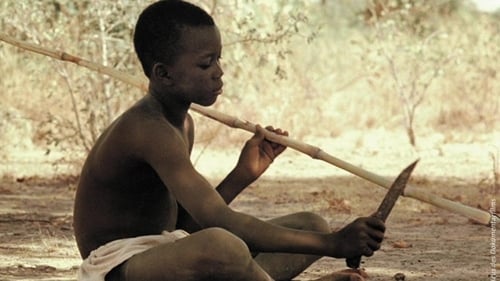
Nikiema is a farmer from Burkina who sees fate come down upon him. His fouryearold son dies from a simple case of measles. He sells off his cotton crop at a good price, but he still faces a lot of debts. His fifteenyear old son, who had been helping him with the farm work, flunks out of school and moves to Ouagadaougou, where he finds a job guarding people's bicycles. Nikiema tries to commit suicide because he cannot fulfill his promises to his creditors any more. He is saved at the last moment by the arrival of one of his many sons living in the Ivory Coast.

On their wedding night, a couple rescue a baby from a garbage bin only to adopt it some years later.

Tiraogo's wife
In the Mossi culture, one of the rites attending the birth of a child and its induction as a new member of the community involves the burial of the placenta. The space in which the placenta is buried is called 'Zan Boko' - a phrase which connotes the religious, cultural and affective relations that bind the child to the land and that embraces the notions of 'rootedness' and 'belonging'. Kaboré tells the story of Tinga, who resists the encroaching urbanization of his native territory. The specific rhythms and vision of the rural community, including its values, social relationship, and individual & collective destinies, are altered when a city is planted on the edge of an ancient native village.

Koudbila
In pre-colonial times a peddler crossing the savanna discovers a child lying unconscious in the bush. When the boy comes to, he is mute and cannot explain who he is. The peddler leaves him with a family in the nearest village. After a search for his parents, the family adopts him, giving him the name Wend Kuuni (God's Gift) and a loving sister with whom he bonds. Wend Kuuni regains his speech only after witnessing a tragic event that prompts him to reveal his own painful history.



